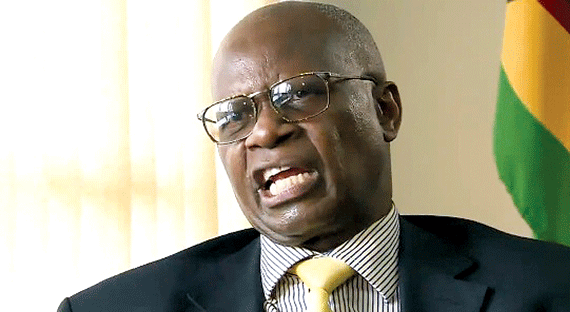
. . . rendering 14 499 jobless and as at that time this year, 134 firms had shut down, throwing 9 280 people out of work.
In October, the Confederation of Zimbabwe Industries revealed that industry capacity utilisation declined by 3% to 36,3% from 39,6% in 2013.
“The economic underperformance reflects subdued economic activity and depressed aggregate demand, coupled with tax leakages, particularly at our ports of entry,” Chinamasa said.
During his presentation, the minister gave a national fiscal review of the country’s economic performance. He said 2014 revenues were expected to close at $3,93 billion, comprising $3,7 billion in tax revenue and $227 million in non-tax revenue.
Chinamasa added that recurrent expenditure would continue to dominate government expenditure at 92% leaving very little for capital expenditure.
“The balance of $798 million will be allocated towards operations, debt servicing and capital projects.”
Between January and October there was a trade deficit of $2,9 million, exports amounting to $2,4 billion and imports cost $5,3 billion.
Chinamasa explained that total revenue collections for the ten months to October 2014 amounted to $3,037 billion, against a target of $3,27 billion and $3,01 billion realised over the same period in 2013.
- Chamisa under fire over US$120K donation
- Mavhunga puts DeMbare into Chibuku quarterfinals
- Pension funds bet on Cabora Bassa oilfields
- Councils defy govt fire tender directive
Keep Reading
“For the first 10 months of 2014, the country received less foreign direct investment amounting to $146,6 million compared to $311,3 million during the same period in 2013,” he said.
Banking sector deposits increased by 8,3% from $4,8 billion to $5,2 billion over the year to October 2014. Growth during the corresponding period last year was 7,9%.
However, after the presentation of the fiscal proposals, attention immediately switched to events in Zanu PF before and after its congress, which eventually saw Joice Mujuru and more than 15 ministers being fired over a political fallout.
Mujuru was replaced by Justice minister Emmerson Mnangagwa while Choppies chairman Phelekezela Mphoko was appointed vice-president, taking up the seat that had been vacant since the death of John Nkomo in January 2013.

Veteran economist John Robertson said the appointments would not improve the economy, but expressed hope that there would be more focus on the economy since everybody was now aware of their political positions.
This political turmoil was reported to have strained the country’s financial coffers since, according to the Constitution; former vice-president Mujuru would continue living off taxpayers drawing a monthly pension equivalent to the salary of a sitting vice-president for life. The country would have to pay three vice-presidents.
Appointments became contentious following revelations by the BBC that the government spent $215 000 on salaries for the president and one vice-president in 2014 alone.
While the country focused on politics, in December, the Zimbabwe Stock Exchange was demutualised and the government reduced its shareholding from 32% to 16%, while stockbrokers reduced their shareholding from 68% to 32%.
The RBZ unveiled a new set of bonded coins worth $10 million on December 18.
Central bank governor John Mangudya said the introduction of the bond coins on the local market was part of efforts to ease the shortage of change, but allayed fears of clandestinely bringing back the defunct Zimbabwe dollar.

Coins of 1c, 5c, 10c and 20c were part of a five-year $50 million bond that the government secured to give them value.
A 50c coin is to be introduced in March 2015.
Despite the assurance from the central bank boss, there were mixed feelings over the bond coins with some businesses and citizens sceptical of government’s intentions.
Economic stakeholders started the year with a gloomy projection and as it closes, the director of the Labour and Economic Development Research Institute of Zimbabwe Godfrey Kanyenze, blamed this weak performance on structural weakness, negative inflation, subdued export performance, administrative challenges, lack of synchronisation and expenditure overrun.
Kanyenze advised inclusive pro-poor growth which he said could only be done by adopting an inclusive stakeholder approach under a social contract where stakeholders subordinate sectarian interests to the national one.










